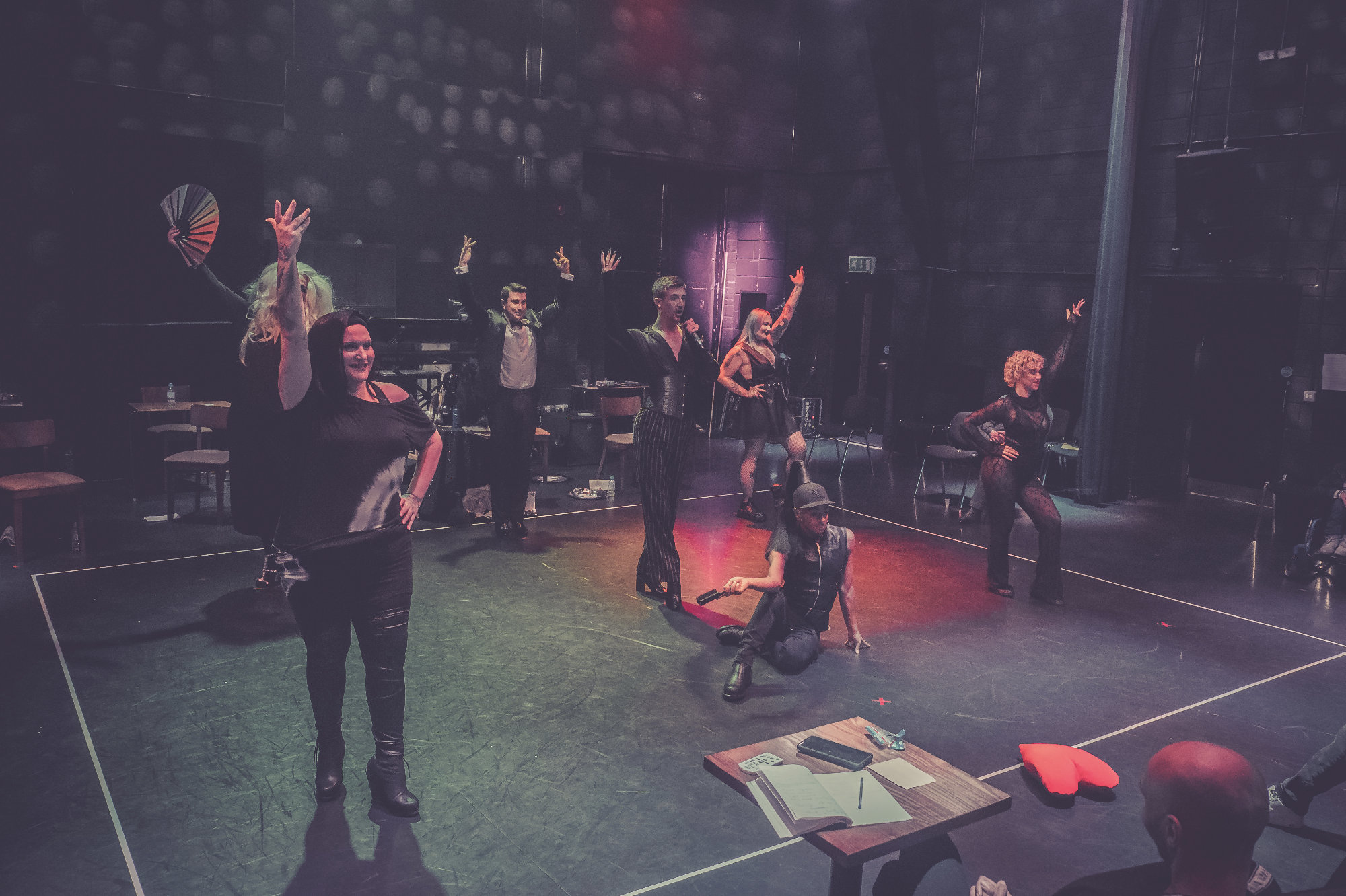Who is the Audience for Rent Party Peterborough? By Iqra Saeed
/Watching Rent Party is such an experience. Every cast member has a different story to share. Each one so different and evoking different emotions. These personal stories shed light on issues which those who are LGBT+ face throughout their lives but others may not be aware of. Some stories are heart-breaking. Others are more light-hearted and may even make you smile. A show like Rent Party existing reflects the need of these stories to be heard and seen.
Photo by Thomas Byron Photography
My attempts to imagine an audience, for every theatre show I see, always result in a particular type of person. An audience who is only or mostly made up of people who are white. However, Peterborough is also home to many other people and communities: Kurdish, Pakistani and Eastern European, to name a few. Yet if my idea of Peterborough was based on Rent Party I would have no knowledge of any of the communities.
I am Pakistani and not seeing anyone like myself within the audience is worth noting. From my understanding and experience of the Pakistani culture, there is a strong denial when it comes to queer people.
In London I know many Pakistanis who choose to be visible - although understandably this is not the case for everyone. Of course, London is a much bigger city, therefore it can be easier to be true to one’s identity outside of home. But there is no denying the visibility is much more prominent.
Peterborough being relatively close to London - two hours by car, or one by train - may also play a part in this, as some may think change is not needed when London is fairly accessible. If everyone is going to London, then this means no one is cultivating these things within Peterborough, and a one-hour train journey is a minor sacrifice people in Peterborough are prepared to make.
Perhaps Pakistani people would be in the audience of Rent Party if they could see themselves in the cast. But the cast members chosen for a show also depends on who is willing. The nature of Rent Party means cast members have to be very brave and comfortable with sharing something very personal to them. It is not known who was approached to play a role and well-being has to be prioritised.
Queer visibility is increasing in larger cities due to the progressive nature of society. Even Pakistani women are taking an increased stand for feminism and against issues such as domestic violence. It would make sense for the LGBTQ+ community to follow suit. Can theatre support this?
Some may argue that it would be unrealistic to rely on theatre to change a whole community’s view. Especially when that community is already seen as having fallen behind on issues such as women’s rights, domestic violence and forced marriages. Not just by outsiders, but individuals within that community.
Surely, Pakistani representation within Rent Party could potentially work as a catalyst in bringing this community up to speed?
Of course, potential doesn’t guarantee any changes.
The nature of Rent Party also needs to be taken into consideration. The cast speak very openly of their own experiences and share their stories. There is a level of responsibility that comes with giving people a platform to share their experiences. Would a gay Pakistani woman be protected once the show was over? Or could she now be a victim of homophobia within her own community?
About Iqra Saeed: “I’m a journalist who lives just outside of Peterborough. I’m 23 years old. I was born in East London and lived there until I was 16. I do miss London but sometimes it’s too busy. Peterborough is much more calm and quiet. I think that’s a good thing, but some may disagree with me! I’m also Pakistani and this gives me an insight into cultural differences/similarities. Especially as I was fostered by a white family and still live with them. Another perspective I can also unlock is from the point of a disabled person. Being a wheelchair user brings issues such as inclusion to my attention. All these different perspectives were almost like a toolkit when it came to writing about Rent Party. It was such privilege to watch and write about Rent Party.”


